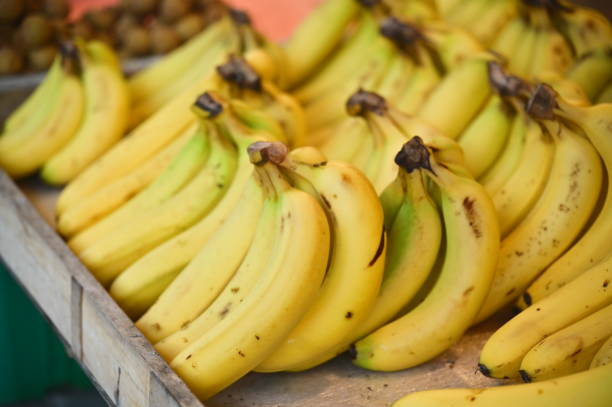Potassium Foods Guide – The Smart Way to Eat for Better Health

When it comes to minerals essential for overall wellness, potassium often flies under the radar. However, it plays a crucial role in keeping your body functioning properly. This Potassium Foods Guide is your go-to resource for understanding how to get more of this vital nutrient through natural, everyday foods.
What Is Potassium and Why Is It Important?
Potassium is an electrolyte that helps regulate fluid balance, nerve signals, and muscle contractions. It works closely with sodium to maintain blood pressure and supports cardiovascular health. A potassium-rich diet can help reduce water retention, improve bone strength, and even protect against stroke.
The problem? Many people simply don’t consume enough. That’s why this Potassium Foods Guide is here—to show you just how easy it is to include more potassium-rich foods in your diet.
Top Potassium Foods You Should Be Eating
Let’s break down some of the best sources of potassium that you can include in your meals:
Fruits
- Bananas: The classic potassium source, with about 420 mg per medium fruit.
- Avocados: One avocado delivers around 975 mg—nearly a third of your daily needs.
- Cantaloupe: A refreshing option with over 470 mg per cup.
- Prunes and Raisins: Dried fruits are excellent for a quick, potassium-rich snack.
Vegetables
- Spinach: Cooked spinach provides around 800 mg per cup.
- Sweet Potatoes: These tasty root vegetables have about 540 mg in a medium serving.
- Mushrooms: White button mushrooms offer 300-400 mg per cup when cooked.
- Pumpkin: Whether fresh or canned, it’s a good source.
Legumes and Whole Grains
- Lentils and Kidney Beans: Cooked lentils provide over 700 mg per cup.
- Quinoa: A nutrient-dense grain with both potassium and protein.
- Chickpeas: Great in salads or roasted for snacks—about 470 mg per cup.
Animal-Based Sources
- Salmon: A 3-ounce fillet provides about 430 mg, along with healthy omega-3s.
- Milk and Yogurt: Dairy is rich in potassium and supports bone health.
Simple Meal Ideas Using This Potassium Foods Guide
- Breakfast: Oatmeal topped with banana slices, chia seeds, and a spoon of peanut butter.
- Lunch: Quinoa salad with chickpeas, spinach, cherry tomatoes, and avocado.
- Dinner: Grilled salmon with a side of mashed sweet potatoes and steamed greens.
- Snacks: A handful of raisins, yogurt with fruit, or a smoothie with spinach and mango.
How Much Potassium Do You Need?
Adults generally need around 2,500 to 3,400 mg of potassium per day. Athletes and active individuals might need more, especially if sweating heavily. This Potassium Foods Guide helps you reach those levels with natural foods instead of supplements.
Who Should Be Cautious?
People with kidney problems should not significantly increase potassium intake without medical supervision. High potassium levels (hyperkalemia) can be dangerous and must be managed carefully in such cases.
- Bananas: A quick and easy source, with over 400 mg per medium banana.
- Oranges & Orange Juice: A medium orange has about 240 mg; one cup of juice has over 470 mg.
- Apricots: Fresh or dried, they’re excellent potassium boosters.
- Melons: Cantaloupe and honeydew both provide over 400 mg per serving.
- Beet Greens & Spinach: Cooked versions can give you over 800 mg per cup.
- Sweet Potatoes: One of the best, offering more than 500 mg per medium serving.
- Broccoli & Brussels Sprouts: Rich in potassium and fiber, great for side dishes.
- White Beans: A single cup can contain over 1,000 mg of potassium!
- Lentils & Black Beans: Great in soups or salads—offering 600–700 mg per serving.
- Almonds & Pistachios: Snacking on these adds both potassium and healthy fats.
- Quinoa: A complete protein with added mineral benefits.
- Fish (Salmon, Tuna, Halibut): Offer potassium along with heart-healthy fats.
- Dairy Products: Milk and yogurt give around 350–500 mg per serving.
- Breakfast: Start the day with a banana smoothie, or Greek yogurt with sliced apricots.
- Lunch: Lentil and spinach soup with whole-grain bread.
- Dinner: Grilled salmon with sweet potato mash and steamed broccoli.
Final Thoughts
With this Potassium Foods Guide, you now have the knowledge to make better food choices that support your heart, muscles, and nervous system. Whether you’re building a smoothie, tossing a salad, or prepping dinner, adding a potassium-rich ingredient is one small change that delivers big health benefits.





